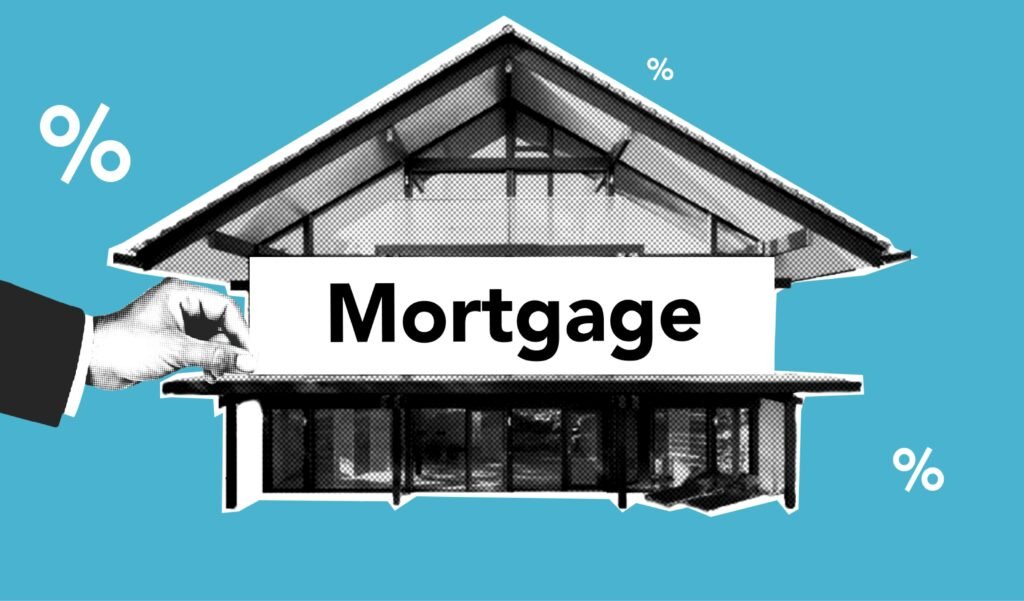
Introduction
Mortgage loans are essential financial tools that enable individuals to achieve homeownership. Understanding the intricacies of mortgage loans is crucial for prospective homebuyers to navigate the process effectively and make informed decisions about their financial future.
Types of Mortgage Loans
Mortgage loans come in various types tailored to different borrower needs:
Fixed-Rate Mortgages: These mortgages offer stable interest rates throughout the loan term, providing predictability for budgeting.
Adjustable-Rate Mortgages (ARMs): ARMs feature interest rates that adjust periodically based on market conditions, offering initial lower rates but subject to fluctuation.
FHA Loans: Insured by the Federal Housing Administration, FHA loans are accessible to borrowers with lower credit scores and typically require a lower down payment.
VA Loans: Available to eligible veterans, active-duty service members, and surviving spouses, VA loans offer favorable terms with no or low down payment options.
Application Process and Eligibility
Applying for a mortgage involves several key steps:
Pre-Approval: Lenders assess a borrower’s financial situation to determine the maximum loan amount they qualify for.
Documentation: Borrowers need to provide documents such as pay stubs, tax returns, and bank statements to verify income and assets.
Property Appraisal: Lenders conduct an appraisal to determine the property’s value and ensure it meets loan requirements.
Underwriting: Lenders evaluate the borrower’s creditworthiness, considering factors like credit history, income stability, and debt-to-income ratio before approving the loan.
Understanding Interest Rates and Fees
Interest rates play a critical role in mortgage loans:
Annual Percentage Rate (APR): The APR reflects the total cost of borrowing, including interest and fees, over the loan term.
Points: Borrowers may pay points upfront to lower the interest rate, with each point representing 1% of the loan amount.
Closing Costs: These include fees for services such as appraisal, title search, and legal fees, typically paid at the closing of the loan.
Private Mortgage Insurance (PMI): Required for conventional loans with less than a 20% down payment, PMI protects lenders against default.
Factors Affecting Mortgage Loan Approval
Several factors influence mortgage loan approval:
Credit Score: Higher credit scores generally lead to better loan terms and lower interest rates.
Income and Employment History: Stable income and employment demonstrate a borrower’s ability to repay the loan.
Debt-to-Income Ratio: Lenders evaluate the balance between a borrower’s monthly income and existing debt obligations.
Loan-to-Value Ratio (LTV): The LTV ratio compares the loan amount to the property’s appraised value, affecting the loan’s risk assessment.
Common Uses of Mortgage Loans
Mortgage loans serve as a financial foundation for homeownership and investment:
Primary Residence Purchase: Buying a home for personal use and establishing long-term stability.
Investment Property: Purchasing real estate as an investment to generate rental income or future resale profit.
Home Improvements: Financing renovations or repairs to enhance property value and living conditions.
Refinancing: Replacing an existing mortgage with a new loan to secure better terms, reduce monthly payments, or tap into home equity for other financial needs.
Benefits of Mortgage Loans
Mortgage loans offer several advantages to borrowers:
Long-Term Financing: Spread payments over 15 to 30 years, making homeownership more affordable and accessible.
Equity Building: Property ownership builds equity as mortgage payments reduce the loan principal.
Tax Deductions: Interest payments and certain closing costs may be tax-deductible, providing potential financial benefits.
Stable Housing Costs: Fixed-rate mortgages offer stable monthly payments, protecting against rental increases and inflation.
Risks and Considerations
While mortgage loans provide pathways to homeownership, borrowers should be mindful of potential risks:
Foreclosure Risk: Defaulting on mortgage payments can lead to foreclosure, resulting in the loss of the property.
Interest Rate Fluctuations: Adjustable-rate mortgages are subject to interest rate changes, potentially increasing monthly payments.
Costs of Ownership: Beyond mortgage payments, homeowners are responsible for property taxes, insurance, and maintenance expenses.
Tips for Choosing the Right Mortgage Loan
Selecting the right mortgage loan requires careful evaluation and consideration:
Comparing Loan Options: Evaluate interest rates, loan terms, and closing costs from multiple lenders to find the most competitive offer.
Understanding Loan Terms: Review and understand all loan terms, including prepayment penalties and fees, to avoid surprises.
Financial Readiness: Assess personal financial readiness and budget constraints to determine affordability and long-term financial stability.
Managing Mortgage Payments
Effective management of mortgage payments is crucial for financial stability:
Budgeting: Plan and allocate funds for monthly mortgage payments within the household budget to ensure timely payments.
Automated Payments: Set up automatic payments to avoid late fees and maintain a positive payment history.
Early Repayment Strategies: Consider making additional payments or increasing monthly installments to pay off the mortgage faster and reduce overall interest costs.
Conclusion
In conclusion, mortgage loans are fundamental tools that empower individuals to achieve homeownership and financial stability. By understanding the various types of mortgage loans, the application process, interest rates, factors influencing loan approval, common uses, benefits, risks, and practical tips for choosing and managing loans, borrowers can make informed decisions aligned with their financial goals. Responsible borrowing and proactive management of mortgage obligations contribute to successful homeownership and long-term financial well-being, fostering opportunities for growth and security.